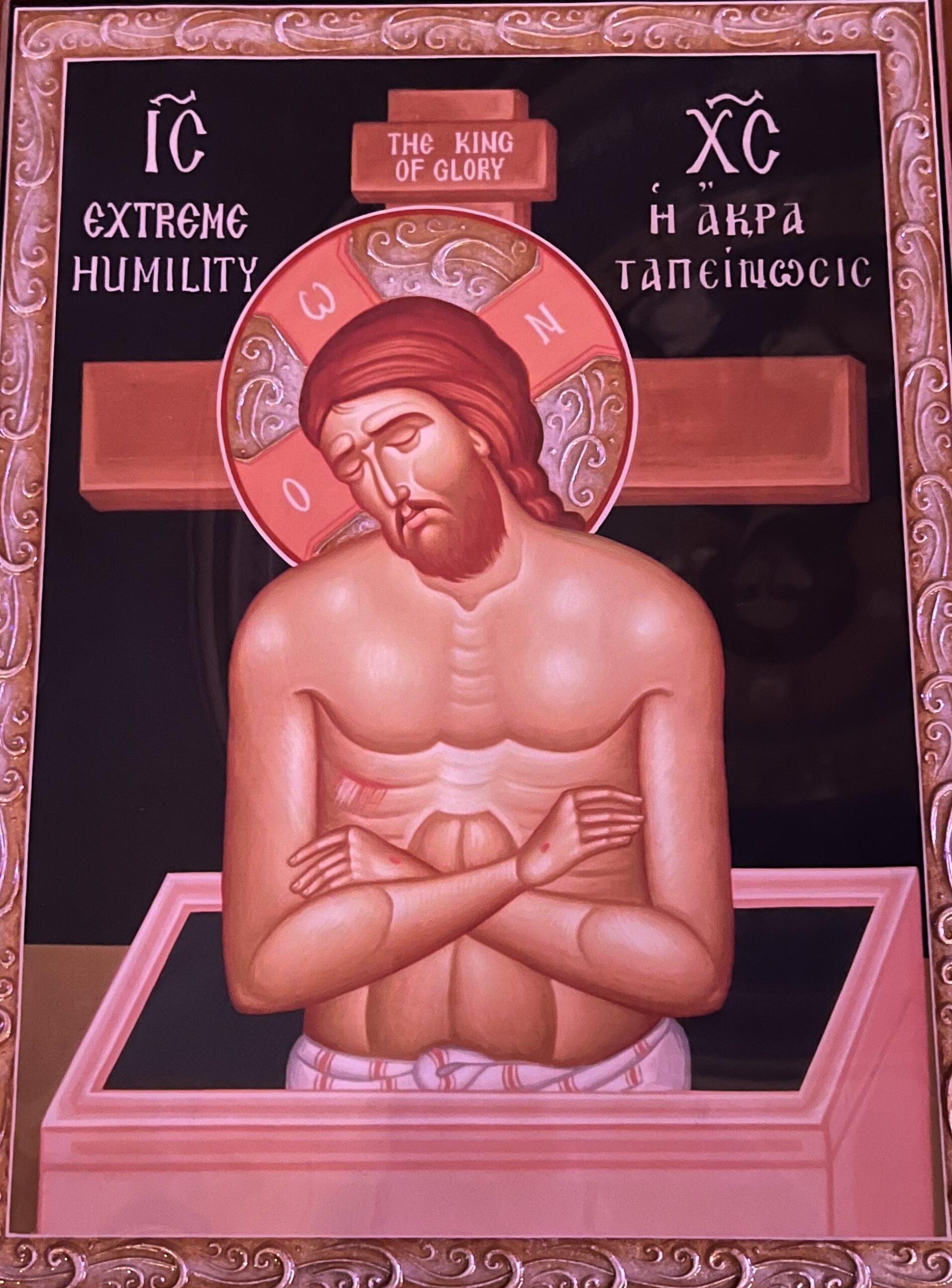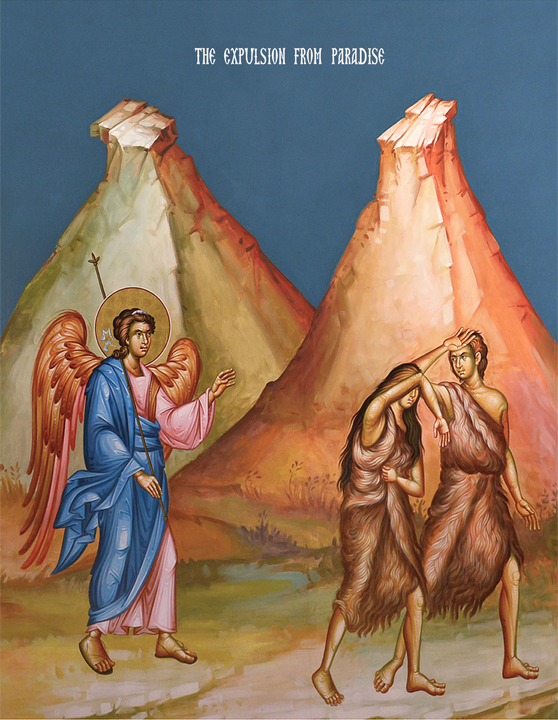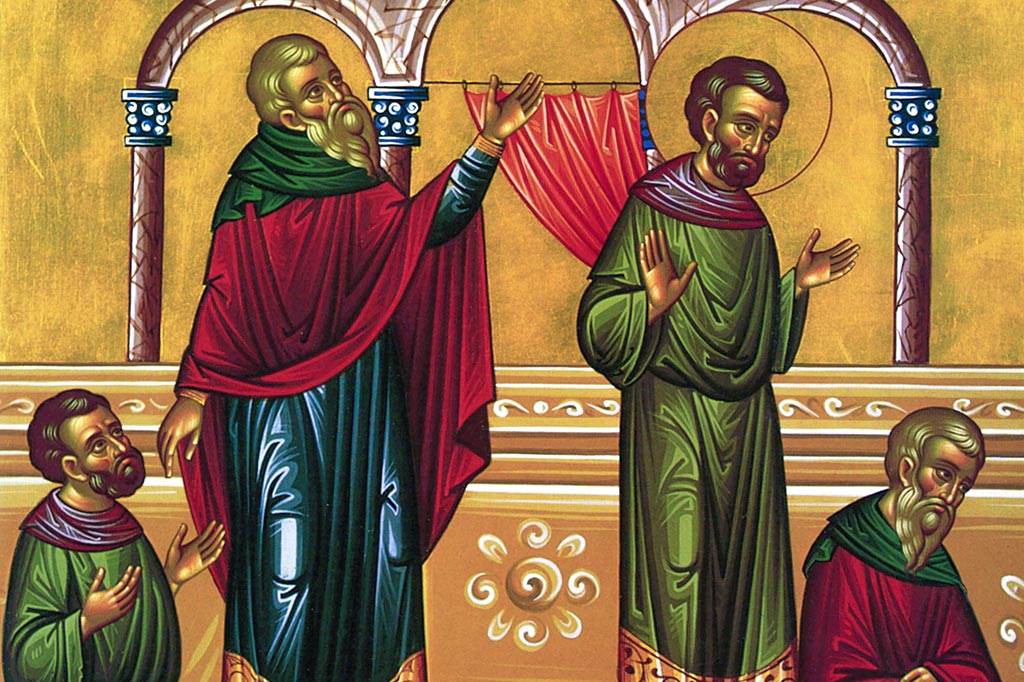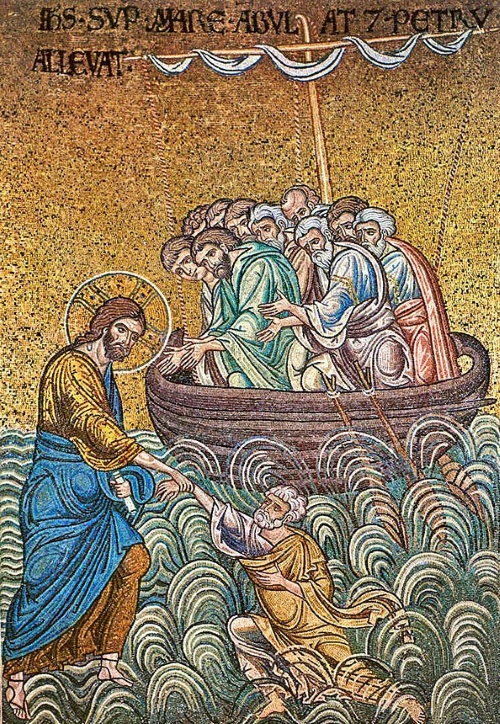Now from the sixth hour there was darkness over all the land until the ninth hour. And about the ninth hour Jesus cried with a loud voice, “Eli, Eli, lama sabachthani?” that is, “My God, My God, why hast Thou forsaken Me?” And some of the bystanders hearing it said, “This man is calling Elijah.” And one of them at once ran and took a sponge, filled it with vinegar, and put it on a reed, and gave it to Him to drink. But the others said, “Wait, let us see whether Elijah will come to save Him.” And Jesus cried again with a loud voice and yielded up His spirit. And behold, the curtain of the temple was torn in two, from top to bottom; and the earth shook, and the rocks were split; the tombs also were opened, and many bodies of the saints who had fallen asleep were raised, and coming out of the tombs after His resurrection they went into the holy city and appeared to many. When the centurion and those who were with him, keep watch over Jesus, saw the earthquake and what took place, they were filled with awe, and said, “Truly this was the Son of God!”
Matthew 27: 45-54
At the time of Christ, the area of the world where He lived was under military control of the Romans. It was under the religious control of the Jews. The Jews delivered Jesus to the Romans because the Jews were not allowed to condemn and kill people, but the Romans were. Pontius Pilate, the local governor or Jerusalem, presided over the hasty trial of Jesus and sentenced Him to death by crucifixion. The sentence was carried out the same day.
Crucifixion was a painful and humiliating way to die. In fact it was the most painful and most humiliating way to die. Those who died from crucifixion died from a variety of causes all lining up at once to snuff the life out of the condemned—exposure, dehydration, animals coming and tearing up a body, and asphyxiation ultimately.
The person in charge of a crucifixion was a centurion, an officer in the Roman army who was in charge of one hundred soldiers. (Remember the word “century” means one hundred years, so a centurion was in charge of one hundred soldiers). The centurion was a man who was very powerful and who struck fear into people. And it was a centurion who presided over the execution of Christ.
His name was not known in the Bible, though he has been given the name “Longinus.” The “Longi” was the word for “spear”. We don’t know if this was his real name, a nickname, or a name attached to him after the crucifixion. We know that after Christ died on the cross, a soldier, possibly the centurion himself, pierced His side with a spear and out flowed blood and water. We also know that a number of “cosmic” events took place at the time of the crucifixion. The whole sky became dark for three hours. An earthquake took place. The curtain of the temple was torn in two. And dead people came out of their tombs alive.
In Matthew’s account, we read that the centurion and those who were with him said that “truly this was the Son of God.” (Matthew 27:54) In other words, the centurion agreed with those around him, that Jesus was the Son of God. In Luke’s account, we read that “when the centurion saw what had taken place, he praised God, and said, ‘certainly this man was innocent!’” (Luke 23:47) As a Roman, who was obviously neither Jewish nor Christian, this was noteworthy itself. What he had witness caused him to praise God. In Mark’s account, his confession is the most powerful. In Mark 15:39, we read that “when the centurion, who stood facing Him, saw that He thus breathed His last, he said, ‘Truly this man was the Son of God!’” In Mark’s account, he took the lead in confessing Jesus as the Son of God.
We read in Matthew 28 that after the Resurrection, the Jews bribed the Roman soldiers to tell people that the disciples came and stole the body of Jesus. Longinus, who had possibly also been involved with guarding the tomb, did not go along with this plan and instead preached about the Resurrection of Christ. He stopped being a centurion, was baptized and became a Christian. The Romans heard about the former centurion, now a devout disciple, and wanted to kill him. Longinus went to the Romans willfully and disclosed that he was the centurion they were looking for. Eventually he was beheaded.
The lesson of St. Longinus is a profound one. We know of many saints who started out as sinners. Saint Peter denied Christ and he is the rock on which Christ founded the Church. Saint Paul was persecuting Christians, as well as killing them, and he is regarded, along with Saint Peter, as the greatest of the Apostles. Saint Longinus presided over the death of the Son of God—He helped kill Christ! What could be more of an egregious sin than that?! And yet he repented and became a saint. The lesson of Saint Longinus is that we can all become saints, no matter what we’ve done, when we repent of our sins and believe in Christ. If St. Longinus can be a saint, than anyone can. If God can forgive him, anyone who comes to God in repentance can be forgiven. If there was salvation for him, then there is certainly hope for you and me.
Your martyr, O Lord, was worthily awarded by You the crown of incorruption, in that he conted for You our immortal God. Since he possessed Your power, he defeated the tyrants, dashing the demons’ powerless displays of defiance. O Christ God, at his fervent entreaties, save our souls. (Apolytikion of St. Longinus, trans. by Fr. Seraphim Dedes)
Don’t give up and don’t despair, salvation is still on the table for any of us, no matter who we are and what we’ve done. Saint Longinus is proof of that!



